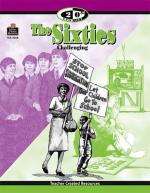|
This section contains 927 words (approx. 4 pages at 300 words per page) |

|
The Supreme Court decision in Red Lion Broadcasting Co. v. FCC on 9 June 1969 institutionalized the modern interpretation of the Fairness Doctrine for radio and television broadcasters, which provided equal time to spokespersons representing conflicting views on political issues. The case arose in 1964 when a radio preacher, Billy James Hargis, used a prerecorded radio program to attack Fred Cook, the author of a book highly critical of Barry Goldwater, the Republican candidate for president. Cook, with Democratic party support, demanded equal time from the almost two hundred stations that broadcast the show to rebut the Hargis charges. All of the stations except one complied with Federal Communications Commission (FCC) rules on fairness. WGCB, a station in the small Pennsylvania town of Red Lion, instead of offering free airtime to Cook, offered to sell commercial time for the rebuttal. Cook complained to the FCC...
|
This section contains 927 words (approx. 4 pages at 300 words per page) |

|




